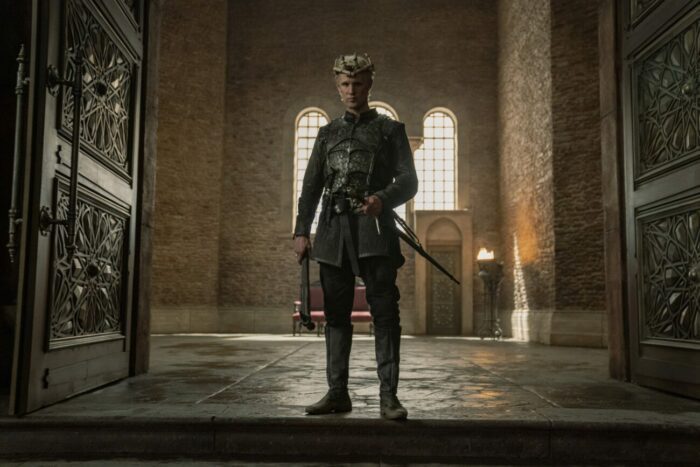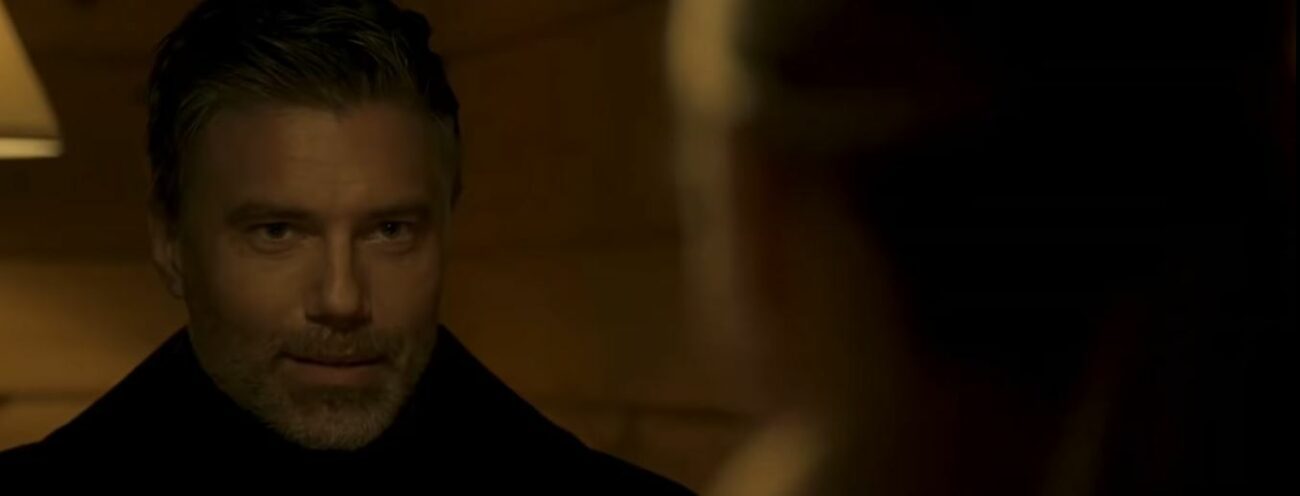Oh, dear reader, I’m so frightfully sorry! Here I promise you Larks & Recs each week and when you’ve dutifully checked for our missives these many days, you haven’t found them. Sorry we’ve let you down. This week I’ve got a little recommendation for you of House of the Dragon as spectacle, and Paul’s here to tell you to watch The Virtuoso. We’ll be back each week (or most weeks!) to share the things that we’ve been into lately, be they new or old, TV or film, or some other medium of enjoyment.
Think of us like your friends at the bar, dishing about what’s good. The next round’s on us.
TV Recommendation: House of the Dragon
Caemeron Crain: You’ll hardly need me to recommend House of the Dragon to you, as you probably have a friend who has been urging you to read George R.R. Martin’s books for over a decade and those book fans are loudly geeking out all over the place. Which is great!
But I’m not here to recommend HotD to you because it’s good. Me being the source of the recommendation is the important thing here. Of course, you probably don’t know me, or maybe you’ve read some things that I’ve written. Maybe you’ve even read the one where I argue that Game of Thrones became irredeemably bad and politically pernicious. The point is, it should kind of surprise you that I’m recommending House of the Dragon.

I checked out the show because I couldn’t help it—I just had to see what this new series was, and I’ll readily admit that I was looking for something like the experience of watching Game of Thrones in its heyday. And HotD is providing that—or at least a pale simulacrum of it. In other words, don’t watch House of the Dragon because there is anything meaningful in it (there isn’t); watch because it’s a spectacle.
It may not be the cultural phenomenon that GoT was, and perhaps nothing ever will be again, but though it started off kind of slow, as we’re reaching the middle of the first season I am becoming enrapt by the melodrama.
House of the Dragon is basically a soap opera with nudity and violent death in it. I wouldn’t say it’s good, but boy am I having a good time. And I think you’ll want to watch this one as it airs.
Film Recommendation: The Virtuoso
Paul Keelan: The immediate irony of The Virtuoso is how amateurish it seems for a movie bearing such a title. Amateurish doesn’t mean bad, though. Far from being classifiable as either good or bad, the film more accurately feels mechanical. Yet, by this, I don’t quite mean unoriginal. It actually feels obliquely original—a uniquely earnest blend of neo-noir and sniper assassin tropes that never feel too platitudinous. That said, I’m not sure if its originality is fully intentional or not (I say this because much of its originality feels possibly a consequence of its restrained budget). I’m not sure intention matters all that much, either—beyond one’s ancillary curiosity to gauge the creators’ talent/artistic sensibilities, that is.
At the very least, The Virtuoso feels offbeat when compared to the recent slate of hyperkinetic action flicks. It has a quietness—a noir-inspired somber tone—that never relents. It also tirelessly flouts the basic rule of screenwriting—show, don’t tell—with flagrant disregard. There are multiple narrated voice-overs that last over 20-minutes. Anthony Hopkins gives a truly haunting, 10-minute monologue (about following inhumane orders in war) while standing on cemetery grounds that’s so long-winded (without any flashbacks or visual accompaniments) that he himself apologizes to his one-man audience for rambling longer than he had in 50 years. Clearly, when images are too pricey, you paint with words.

To hide its cheapness, the film seemingly tries to camouflage itself. The visual palette couldn’t be more colorless, diluted, or neutral. The lead is similarly stoic/emotionally neutral. He divulges his assassin methodologies in a monotone stream of conscious reflections that evoke ASMR sessions. At one point, he notes strategically choosing muted car colors to not stand out. This decision neatly resembles the film’s style and its anti-hero’s personality—insofar as all strive to appear deceptively anonymous so as to hide secretly masterful craftsmanship underneath.
The other primary agenda of our meticulous protagonist is to master the technical merits of “time and precision.” Mirroring this ambition, The Virtuoso proceeds at a patient, clinical clip—robotically paced from start to finish. Its hesitations and its stuttering exigency feel as forced and stiff as its over-calculating protagonist. This tentativeness highlights its biggest flaw—The Virtuoso seems oblivious to the notion that true skillfulness requires an ability to intuit, improvise, and think on one’s feet. Unable to break the habit, everything feels rigidly lagging and hyper-scripted—doomed to be the sluggishness of adhering to strict protocols. By the end, I honestly couldn’t tell if that was its charm or its folly.
Decide for yourself. The Virtuoso is streaming on Amazon Prime.


